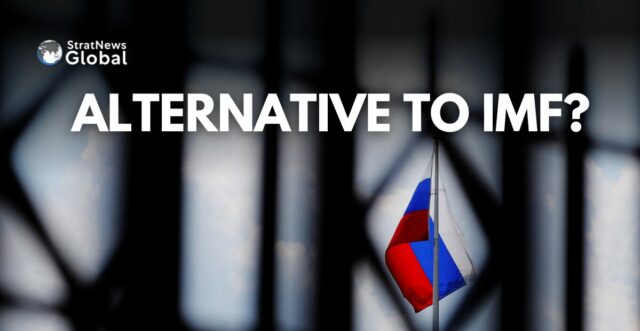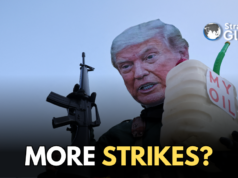Russia has called on its BRICS partners to establish an alternative financial institution to counteract political pressure from Western nations. The proposal, made ahead of the upcoming BRICS summit, was announced by Russian Finance Minister Anton Siluanov during a meeting of top BRICS finance and central bank officials in Moscow this week.
Expanding BRICS And It’s Financial Ambitions
BRICS, initially formed by Brazil, Russia, India, China, and South Africa, has recently expanded to include Egypt, Ethiopia, Iran, the United Arab Emirates, and Saudi Arabia. Representing around 37% of the global economy, the group is exploring options to establish new financial mechanisms to support its members and reduce reliance on Western-dominated institutions like the International Monetary Fund (IMF) and the World Bank.
“The IMF and the World Bank are not performing their roles. They are not working in the interests of BRICS countries,” Siluanov stated on the first day of the meeting. He added that it is necessary to form “new conditions or even new institutions, similar to the Bretton Woods institutions, but within the framework of our community, within the framework of BRICS.”
Motivation Behind The Proposal
Russia’s push for a new financial institution comes amid ongoing Western sanctions that have severely impacted its economy. After Russia’s invasion of Ukraine in February 2022, the West imposed strict financial measures, including freezing Russian forex reserves in dollars and euros and cutting the country off from international capital markets.
The sanctions have also led to delays in international transactions for Russia, even with its BRICS partners, as banks in these countries fear punitive actions from Western regulators. This situation has further fueled Moscow’s desire to establish a financial system less dependent on Western institutions.
Current BRICS Financial Infrastructure
The only significant financial institution established by BRICS to date is the New Development Bank (NDB), created in 2015 to fund infrastructure and sustainable development projects across member states and other emerging economies. Despite this achievement, there has been limited progress in building a broader financial system that can rival the IMF or World Bank.
Elvira Nabiullina, Russia’s central bank governor, previously discussed the concept of a “BRICS Bridge” payments system to link the financial systems of member states. However, implementation has been slow due to technical challenges and differing regulatory environments across BRICS nations.
Strategic Goals Of The New Financial Institution
Siluanov’s proposal aims to create a framework that would enhance financial cooperation among BRICS members and protect them from Western economic and political pressures. This new institution would focus on addressing the unique financial needs of the expanded BRICS group, providing a platform for countries facing similar challenges in accessing global capital markets.
The initiative also seeks to establish a new system that could act as a safeguard against sanctions and support the financial stability of member states in times of geopolitical uncertainty. While details about the structure and operational model of this institution are yet to be outlined, the proposal signals Russia’s intention to lead efforts in transforming the global financial architecture.
Although the proposal has garnered attention, establishing a new financial institution within BRICS is likely to face several obstacles. Disparate economic systems, regulatory frameworks, and geopolitical interests within the group could complicate efforts to form a unified financial body. Additionally, ensuring sufficient funding and agreement among all member states will be crucial for the success of such an endeavour.
The recent expansion of BRICS has introduced new dynamics into the group, potentially increasing its collective influence on global financial matters. However, whether this expanded BRICS group can achieve its goal of establishing a robust financial alternative remains to be seen.
(With inputs from Reuters)
Research Associate at StratNewsGlobal, A keen observer of #China and Foreign Affairs. Writer, Weibo Trends, Analyst.
Twitter: @resham_sng





